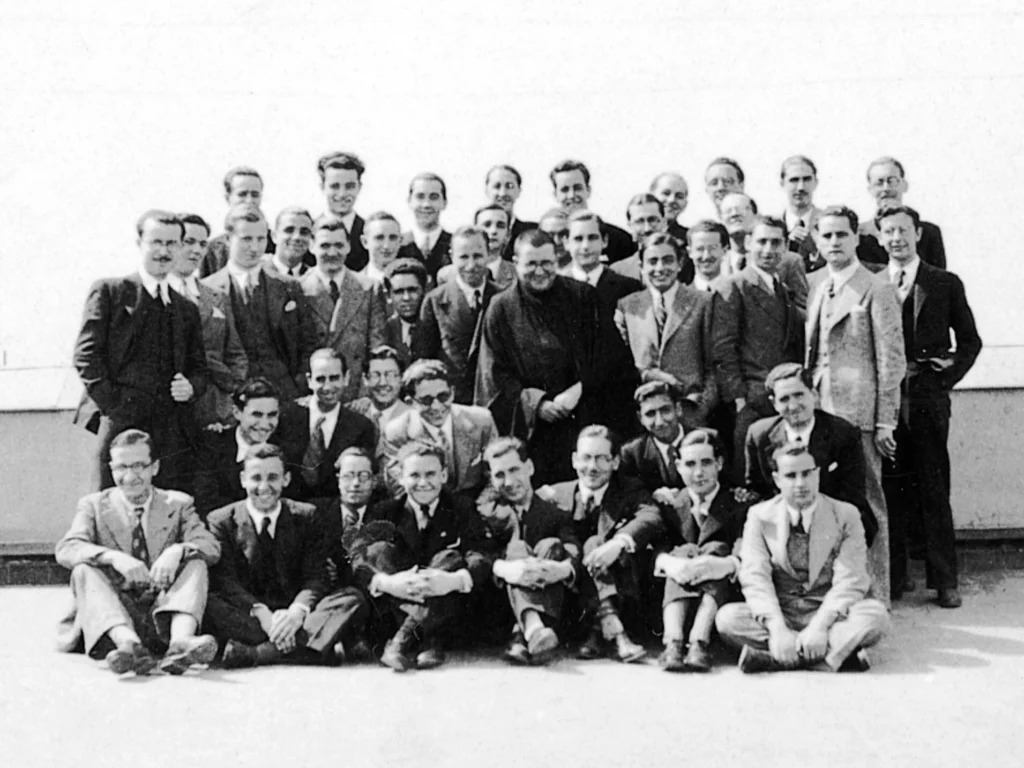This year marks the fiftieth anniversary of the death of St. Josemaría Escrivá (1902-1975), founder of Opus Dei. His life continues to generate interest, studies and also questions: what can we learn today from a priest from Aragon who preached holiness in the midst of the world? Why take a close look at the biography of this saint?
Beyond personal devotions, knowing the lives of the saints has historically been a way to better understand the history of the Church and, at the same time, to discover how the Gospel can be lived in real contexts, with tensions, difficulties, decisions and personal searches. It is not just a matter of admiring, but of learning: of seeing how someone concrete was able to respond to the challenges of his time with inner freedom, faith and dedication.
On the occasion of this anniversary, the Josemaría Escrivá Study Center has launched a digital proposal which includes an interactive chronology, a series of podcasts with historians and eleven short articles that address his life and message from different perspectives.
A concrete life, a universal message
Josemaría Escrivá was born in 1902 in Barbastro, a small town in northern Spain. His childhood was marked by difficulties: the early death of three of his sisters and the family's financial straits. However, it was also a childhood steeped in faith, transmitted by his parents, which would serve as the basis for his vocation.
At the age of 16, during a winter in Logroño, he lived a decisive experience. Walking through the snow, he saw the barefoot footprints of some Carmelite friars and felt that this simple but powerful fact was a call for his life. "If others make so many sacrifices for God and for their neighbor, won't I be able to offer him something?". It was the beginning of a vocational search that would lead him to the seminary and, in 1925, to priestly ordination.
Two years later he moved to Madrid, where he was appointed chaplain of the Patronato de Enfermos de Santa Isabel. There he alternated his priestly ministry with long walks through the poorest neighborhoods of the city, attending to the sick and administering the sacraments.
In 1928, during a spiritual retreat, a key moment occurred. After celebrating Mass, he withdrew to pray and to review some notes he had collected in recent years. It was then that he "saw" what God was asking of him: everyone, without exception, is called to seek God in the midst of the world. That intuition, which he would describe as "seeing" what God was asking of him, gave birth to what would later become known as Opus Dei, which translated from Latin means Work of God.
This vision, of which the early Christians had been so keenly aware, offered a new proposal for their time: each person is called to live the Gospel authentically and to communicate it by example: to be a saint in his or her own personal circumstances.
For St. Josemaría, it was not a personal initiative, but a response to divine inspiration. "I did not found Opus Dei," he would insistently say. "Opus Dei was founded in spite of me.
This message, which began to be transmitted decades before the Second Vatican Council (1962-1965)anticipated what would later be proclaimed by the whole Church: that the vocation to holiness is not the privilege of a few, but a universal call. As the Council affirmed: "All the faithful, of whatever state or condition, are called to the fullness of Christian life and to the perfection of charity, which is a form of holiness that promotes, even in earthly society, a more human level of life. To attain this perfection, the faithful, according to the varying measure of the gifts received from Christ, following in his footsteps and conforming themselves to his image, obeying in all things the will of the Father, should strive to give themselves totally to the glory of God and the service of their neighbor" (Dogmatic Const. Lumen gentium, n. 40).
In this sense, St. Josemaría's spiritual proposal is not a path exclusive to Opus Dei, but a concrete expression of a call that the whole Church recognizes and promotes.
From that October 1928 until his death, Escrivá de Balaguer preached this universal call to holiness and promoted, first from Madrid and then from Rome, the expansion of Opus Dei, which was to become the first of its kind in the world. today is present in more than 60 countries.
Learn more about Josemaria Escriva, a digital proposal
Why, half a century later, does the figure of St. Josemaría still arousing interest? The answer lies in the timeliness of his message. In a fragmented and accelerated world, his call to unity of life, sanctification through work well done and inner freedom is a message that invites reflection and commitment.
On the occasion of the 50th anniversary of his death, the Center for Josemaría Escrivá Studies has launched a new section on the Opus Dei history website titled Learn more about Josemaría Escrivá. This initiative offers a renewed and rigorous look at his life, his historical context and the impact of his message.
The section includes an interactive chronology that traces the key moments of his biography, five podcasts that analyze different stages of his life and eleven short texts that address themes such as vocation, freedom, love for the Church, friendship and the dignity of work.
This proposal is aimed at those who already know the founder of Opus Dei and those who are approaching his figure for the first time. It combines historical rigor with attractive multimedia resources and is part of a broader dissemination project, with a view to the centenary of the founding of Opus Dei, to be celebrated between 2028 and 2030.







